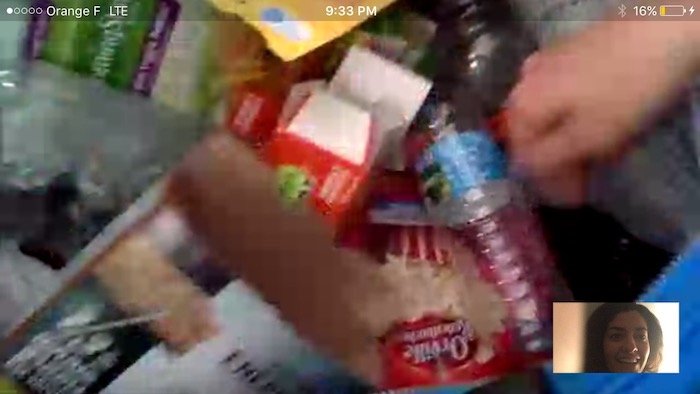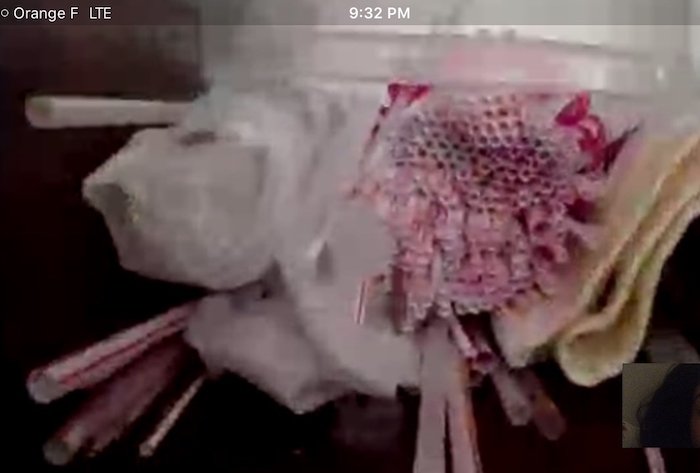Vet Student in Grenada Collects Recyclables in Dorm from Lack of Island Recycling
My sister, Stephanie, was studying Veterinary Medicine at St. George’s University on the island of Grenada in the West Indies from 2016- 2020. During her 4 years of study there, she had an incredibly difficult time recycling. So much so, that she decided to collect of all of her recyclables in her dorm room and bring them with her every time she flew back to Atlanta for the holidays. Now, some might say having to take recyclables on a flight defeats the purpose. But hey, at least her intention counts. Not to mention, many small island nations export their recyclables to the mainland to avoid sending them to a landfill.
Grenada is said to be one of the most picturesque islands in the Caribbean just northeast of Trinidad and Tobago. The island is famous for their spices and known as the "Spice Isle", being a major source of nutmeg, cloves, ginger, cinnamon, and cocoa. Being an island, I’d think recycling would be an obvious solution to waste build up on limited space and an opportunity for economic growth. Sadly, this isn’t the case for many developing small island nations around the world due to the lack of political will, infrastructure, and working operations.
Whatever it is, the gap in policies and regulations controlling these islands’ solid waste creates discouragement and hopelessness for people living on these islands, like my sister. There needs to be stronger voices and organization pushing for governments to take action towards regular collection services and sustainable recycling efforts.
Dr. Lacayo at St. George’s University
The Marine Plastic Problem
There are 5.25 trillion pieces of plastic floating in the ocean… and probably way more than that. A number so large it’s hard to even imagine. I remember Skyping with Steph one day when she was explaining to me how there really weren’t any official recycling plants on the island so she decided to start saving her recyclables in her dorm room so she could bring them home with her on her next trip to Atlanta.
She showed me her suitcase full of cardboard boxes, straws, and plastic bottles. In an effort of diverting these items from the landfill and eventually from the ocean, she started to inspire others to save their own recycling waste as well. Friends from vet school started dropping off their recycling loads at her dorm room and soon enough she became the local recycling vet flying home with separate suitcases full of only recycled waste.
Although only a very small percentage of what gets recycled actually ends up being recycled (of the 8.3 billion metric tons of plastic ever produced, only 9% has been recycled), her individual acts out of shock of having nowhere to recycle for 4 years, made an impact. Not only on her local environment, but also in raising awareness around what her and her friends were consuming.
Steph’s recyclables collection in dorm room
Recycling Solutions for Small Island Nations
With these beautiful islands relying on tourism as a main source of income, accessible recycling options should be obligatory to avoid a build up of waste and pollution around their pristine natural ecosystems.
In researching what other Caribbean islands were doing about their waste issues, I discovered that Aruba uses a program called Wastaway. 95% of Aruba's trash is recycled and converted into a pathogen-free, environmentally safe Btu pellet product called Fluff, widely used for potting soil. There are also options for locals to start small businesses benefiting from reselling and reusing recycled material turned into new materials other larger companies normally invest in. Locals in the British Virgin Islands are getting creative and turning their waste into art.
Companies like Cleanhub exist tackling these wicked problems by creating Material Recovery Facilities on islands around the world to collect recyclable and non-recyclable plastics preventing them from entering our waterways. Other small island nations around the world with the appropriate funds and infrastructure use systems to process their waste and export it to neighboring mainland countries who will either resell it or use it for raw materials.
None of these solutions are simple nor immediate, but with the right policies in place and with enough people who care to stand up for and demand these systems, we can see change.
Tips for a launching a solid sustainable waste management project
1. Coordination and communication among all support agencies, stakeholders, and partners is needed. There should be clear and consistent meetings set up for all involved in setting up this project.
2. If the country is looking for international aid, everyone involved should share and contribute their resources to implement and to improve the solid waste management situation for a continuous long period of time instead of a quick fix.
3. Defining clear roles and specific targets and timelines for all involved stakeholders is very important so that everyone knows exactly what they are responsible for.
4. Strategic planning is necessary in order to be able to use all of the resources available effectively. Make a solid plan of materials needed, budget, and parties involved whether it’s a national project or local community project.
5. This external support can also help find areas to cut costs, minimize waste, and to look for economic incentive measures and opportunities in order to create a solid waste management project into a sustainable self-financing program.
6. Most importantly, one of the most successful tools in creating a long-term solid waste management project is raising awareness. It’s crucial for the public and the decision makers involved to have complete awareness of the project being implemented and the plan to carry it out but also awareness on the importance of consuming less. This should be a long-term effort and may take time to get off the ground but once you see interest in awareness this will dramatically affect the success of your project.
These tips might help launch a sustainable waste management project in a small island-developing nation like Grenada but the implementation of all steps is crucial. Grenada is too beautiful to watch it be buried under trash that could easily be turned into new reusable items. With a little effort, positive energy, and continued collaboration, sustainable projects to handle waste properly on small islands can become a reality.
Do you live on a small island nation? What are you doing in your country to divert waste from the landfill? Leave a comment below and share your island waste solutions!








Life in the ocean hasn’t been more at risk since an asteroid wiped out half of all life on the planet. With warming oceans, ocean acidification, oxygen dead zones, habitat destruction, plastic pollution soups, overfishing, and overexploitation, our ocean is in serious need of some TLC. Discover 7 action steps you can take today to give back to the ocean.